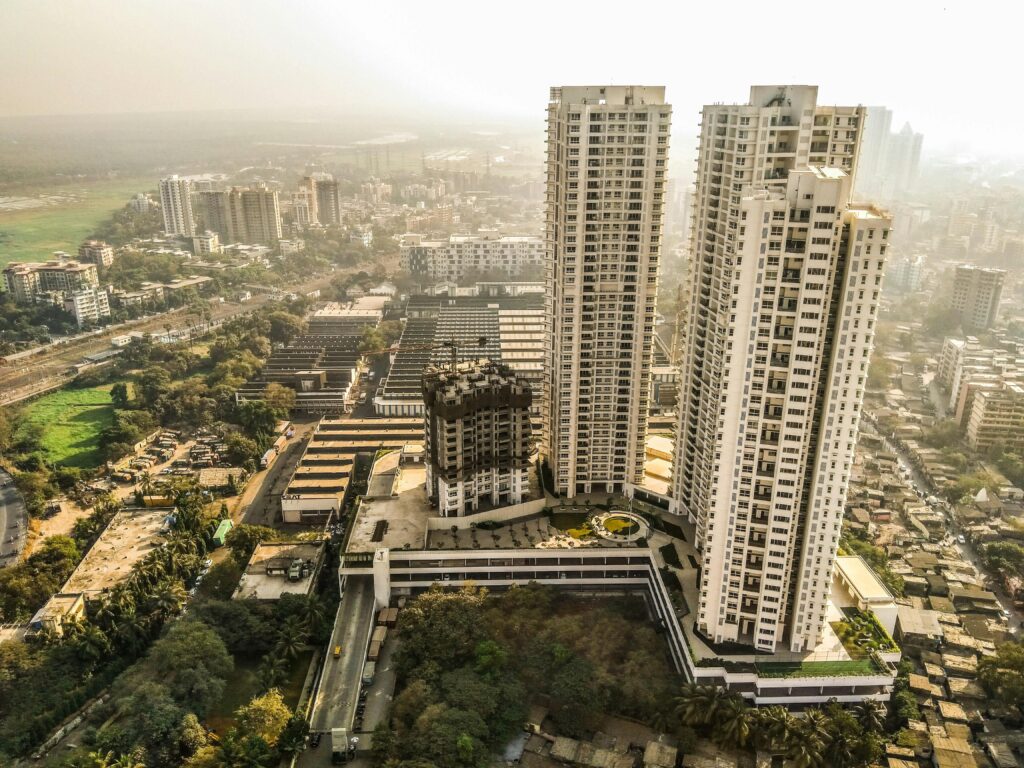Table of Contents
ToggleReal Estate Business in India: A Comprehensive Overview

Introduction
The real estate sector in India has always been a cornerstone of the country’s economy. With a burgeoning population, rapid urbanization, and rising income levels, the demand for real estate—be it residential, commercial, or industrial—continues to soar. This blog explores the key aspects of this business in India, including its current landscape, challenges, opportunities, and future trends.
Market Landscape
India’s real estate market is one of the largest in the world, contributing around 6-7% to the country’s GDP. It is expected to grow to $1 trillion by 2030, driven by urbanization and the increasing number of nuclear families.
Residential:
Commercial:
Significant growth in office spaces due to the boom in IT, retail, and e-commerce sectors.
High demand for co-working spaces as startups and freelancers dominate the market.
Industrial and Logistics:
Rapid growth fueled by e-commerce, warehousing, and manufacturing industries.
Policies like Make in India and implementation of GST have streamlined logistics operations.
Key Drivers of Growth
Urbanization: With over 34% of the population residing in urban areas (as of 2024), the need for housing and commercial infrastructure is at an all-time high.
Infrastructure Development: Government investments in metro projects, smart cities, and industrial corridors have boosted this business.
Foreign Direct Investment (FDI): 100% FDI under the automatic route in construction has attracted global players.
Technological Advancements: Proptech (property technology) has revolutionized how properties are bought, sold, and managed.
Challenges in the Sector
Regulatory Hurdles:
Despite the introduction of RERA (Real Estate Regulatory Authority), compliance remains a challenge for many developers.
Land Acquisition Issues:
High cost and complex procedures associated with land acquisition often lead to project delays.
Economic Slowdowns:
Fluctuations in the economy and high-interest rates can dampen buyer sentiment.
Urban Planning Constraints:
Rapid urbanization has led to unplanned growth in many cities, putting pressure on resources and infrastructure.
Opportunities in the Real Estate Market

Affordable Housing: There’s immense potential in catering to the growing middle-class population.
Green Buildings: Sustainable and eco-friendly construction is gaining popularity.
Smart Cities: With the Smart Cities Mission, there is a demand for tech-enabled urban spaces.
Real Estate Investment Trusts (REITs): These provide a lucrative investment avenue and are gaining traction among institutional and retail investors.
Future Trends
Digital Transformation:
Virtual property tours, AI-driven real estate platforms, and blockchain for transparent transactions are becoming mainstream.
Luxury Real Estate:
High-net-worth individuals (HNIs) are investing in premium properties in metropolitan areas.
Second Homes and Holiday Properties:
There is an increasing trend of purchasing holiday homes, especially in scenic locations.
Rise of Tier-II and Tier-III Cities:
Cities like Indore, Jaipur, and Coimbatore are emerging as new real estate hubs due to better connectivity and lower property costs.
Additional Insights to Consider:
- Education and Awareness: Many first-time buyers and investors in India lack awareness of real estate laws and benefits of instruments like REITs. Highlighting this need can open avenues for new businesses.
- Post-Pandemic Trends: Demand for larger homes due to hybrid work models and preference for wellness-oriented properties could be included.
- Investment Potential: A comparison of ROI (Return on Investment) in Indian real estate versus other global markets would provide a broader perspective.
Conclusion
This business in India presents a dynamic and promising landscape. While there are challenges, the opportunities far outweigh them, making it a lucrative sector for investment and development. With government support, technological advancements, and evolving consumer preferences, the future of real estate in India looks bright. For investors, developers, and buyers, this is the time to capitalize on the sector’s growth potential.
